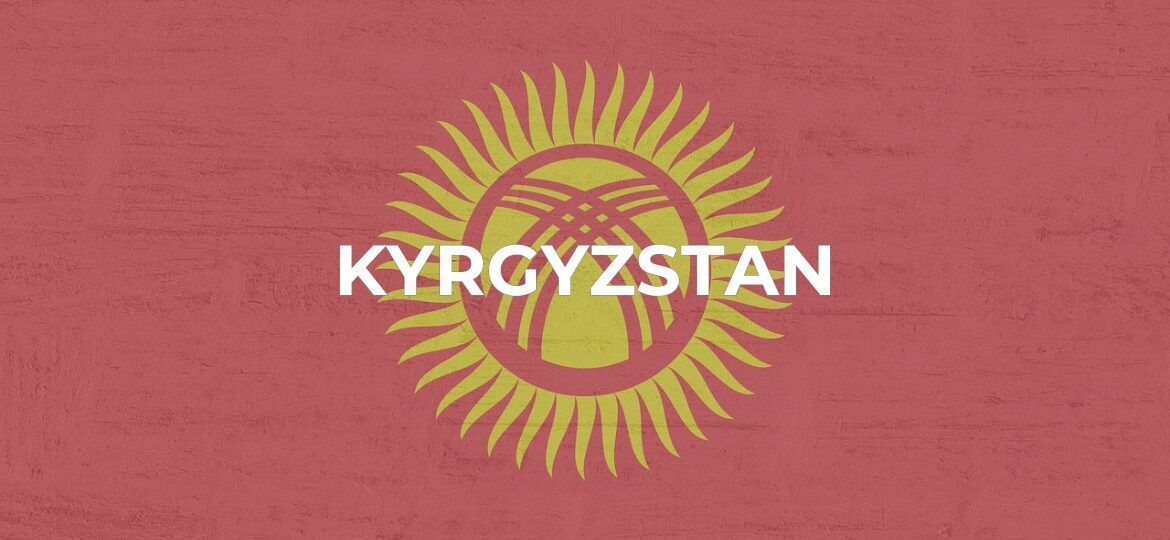
ProtectDefenders.eu expresses its deep concerns regarding the recent crackdown on independent media, journalists and civil society in Kyrgyzstan. Kyrgyz authorities are pursuing several criminal cases of “war propaganda” and “calls to mass disorder” initiated against several independent media outlets.
The media organizations facing charges include independent news agency 24.KG and critical news outlets Temirov Live, Ayt Ayt Dese, Alga Media, Archa Media, and Politklinika, all in clear retaliation for their independent reporting. In an escalation of pressure on independent media, on January 15 and 16, 2024, Kyrgyz law enforcement agents and security services carried out early morning raids targeting media outlets and reporters.
On 17 January 2024, the Pervomaiskiy district court of Bishkek sent 11 journalists and human rights defenders, current and former reporters of the Temirov Live investigative group, to pretrial detention until 13 March 2024. Among them are Makhabat Tazhibek kyzy, Sapar Akunbekov, Ayke Beishekeeva, Joodar Buzumov, Aktilek Kaparov, Saipidin Sultanaliev, Tynystan Asypbek, Maksat Tajibek uulu, Azamat Ishenbekov, Zhumabek Turdaliev and Akyl Orozbekov. All human rights defenders are suspected of “calling for mass civil unrest” whereas Makhabat Tazhibek Kyzy and Azamat Ishenbekov are also labelled as “organizers” of the said mass civil unrest. If found guilty, Makhabat Tazhibek Kyzy and Azamat Ishenbekov can face up to 10 years in prison, and the rest of the defenders – up to 8 years of imprisonment.
The Interior Ministry’s press service told local media that the agency opened the investigation after linguistic experts, commissioned by the police in late December 2023, allegedly concluded that some publications contained signs of such calls. It is unclear what publications these charges concern. The Criminal Code provision is vaguely worded and has repeatedly been used to initiate criminal charges against critics of the authorities. It provides for penalties of up to eight years in prison.
The actions against 24.KG and others come in the context of a worsening campaign against free speech in Kyrgyzstan and are likely to reinforce a climate of fear among independent media outlets, the groups issuing the joint statement said.
In the last few years, independent media and journalists, bloggers and others critical of the Kyrgyz government’s policies have faced increasing pressure, including politically motivated criminal cases, arrests, and imprisonment. Kyrgyzstan is ranked 122nd out of 180 countries in RSF’s 2023 World Press Freedom Index after falling 50 places last year. The websites of independent news sites have been arbitrarily blocked and the authorities have attempted to close down media organizations because of their independent reporting, such as in an ongoing court case against Kloop and an earlier case against the Kyrgyz service of Radio Free Europe/Radio Liberty, in which its bank account was frozen.
Previously another independent outlet, Kaktus Media, came under investigation on charges of war propaganda because of its reporting on hostilities at Kyrgyzstan’s border with Tajikistan. Bolot Temirov, a journalist at Temirov Live whose wife and colleagues were targeted by the raids on January 16, was stripped of his citizenship and deported because his outlet investigated high-level corruption.
On 12 December 2023, the Kastrychnitski District Court of Bishkek considered the lawsuit filed by the Prosecutor’s office of Bishkek for liquidation of the Public Foundation “Kloop Media”. Earlier in September 2023, authorities in Kyrgyzstan blocked access to Kloop Media’s website after an order from the Ministry of Culture claimed that Kloop had violated the law on “fake news”. Kloop Media (Kloop) is a human rights media outlet in Kyrgyzstan. It was founded in 2007 and gained recognition in 2010 for its prompt and transparent coverage of the April 2010 revolution in Kyrgyzstan. Kloop strives to adhere to the principles of independence, impartiality, honesty and accuracy while sharing information that holds significance to the public. It has used investigative journalism to document human rights violations, focusing on topics that include corruption, armed conflicts and violations in such contexts.
Freedom of expression in Kyrgyzstan will further deteriorate if a repressive draft media law, which is currently under consideration in parliament, is adopted. The draft law would significantly expand government control over the media, and grant the authorities wide powers to deny media outlets registration, obstruct their work, and close them down. The draft media law has been severely criticised by the media community, human rights groups and international human rights experts. On January, 15, the parliamentary committee on international affairs postponed its consideration of the draft law, saying it needed additional revisions.
The situation for civil society organisations and NGOs is at risk of further deterioration if the anti-NGO “foreign agents bill” that violates Kyrgyzstan’s human rights commitments by imposing strict limits on freedoms of expression, association and assembly, and allows for the detention of activists and the closure of NGOs is adopted. The repressive legislation, known as the ‘foreign representatives law’ is expected to come up for a second and – final – third reading in parliament in the near future after being endorsed at a crucial committee hearing on 23 January.
If adopted and signed into law, the “foreign representatives” bill is likely to have far-reaching implications for Kyrgyzstan’s vibrant civil society because most groups receive foreign funding due to the lack of domestic sources. According to official statistics, more than 20,000 groups are currently registered in the country. If the law is adopted, the experience of human rights and other groups in Russia indicates that many are likely to be forced to shut down – either at their initiative or by the authorities.
Kyrgyzstan’s human rights record has significantly deteriorated in the last few years, with the authorities taking increasing steps to stifle freedoms of speech, association, and assembly.


